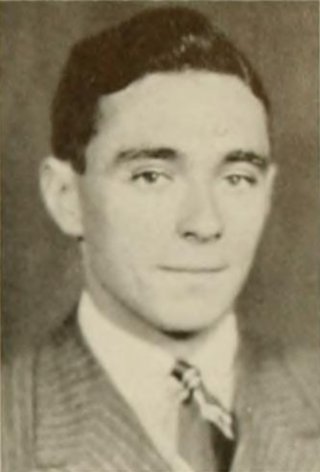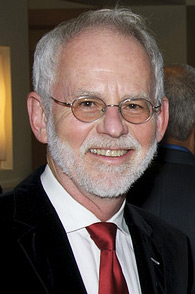
Educational psychology is the branch of psychology concerned with the scientific study of human learning. The study of learning processes, from both cognitive and behavioral perspectives, allows researchers to understand individual differences in intelligence, cognitive development, affect, motivation, self-regulation, and self-concept, as well as their role in learning. The field of educational psychology relies heavily on quantitative methods, including testing and measurement, to enhance educational activities related to instructional design, classroom management, and assessment, which serve to facilitate learning processes in various educational settings across the lifespan.

Learning theory describes how students receive, process, and retain knowledge during learning. Cognitive, emotional, and environmental influences, as well as prior experience, all play a part in how understanding, or a worldview, is acquired or changed and knowledge and skills retained.

Jerome Seymour Bruner was an American psychologist who made significant contributions to human cognitive psychology and cognitive learning theory in educational psychology. Bruner was a senior research fellow at the New York University School of Law. He received a BA in 1937 from Duke University and a PhD from Harvard University in 1941. He taught and did research at Harvard University, the University of Oxford, and New York University. A Review of General Psychology survey, published in 2002, ranked Bruner as the 28th most cited psychologist of the 20th century.
Learning sciences (LS) is an interdisciplinary field that works to further scientific, humanistic, and critical theoretical understanding of learning as well as to engage in the design and implementation of learning innovations, and the improvement of instructional methodologies. LS research traditionally focuses on cognitive-psychological, social-psychological, cultural-psychological and critical theoretical foundations of human learning, as well as practical design of learning environments. Major contributing fields include cognitive science, computer science, educational psychology, anthropology, and applied linguistics. Over the past decade, researchers have expanded their focus to include the design of curricula, informal learning environments, instructional methods, and policy innovations.
Robert Glaser was an American educational psychologist, who has made significant contributions to theories of learning and instruction. The key areas of his research focused on the nature of aptitudes and individual differences, the interaction of knowledge and skill in expertise, the roles of testing and technology in education, and training adapted to individual differences. Glaser has also been noted for having developed the idea of individually prescribed instruction as well as making major contributions to the theory of adaptive education.
The cognitive revolution was an intellectual movement that began in the 1950s as an interdisciplinary study of the mind and its processes. It later became known collectively as cognitive science. The relevant areas of interchange were between the fields of psychology, linguistics, computer science, anthropology, neuroscience, and philosophy. The approaches used were developed within the then-nascent fields of artificial intelligence, computer science, and neuroscience. In the 1960s, the Harvard Center for Cognitive Studies and the Center for Human Information Processing at the University of California, San Diego were influential in developing the academic study of cognitive science. By the early 1970s, the cognitive movement had surpassed behaviorism as a psychological paradigm. Furthermore, by the early 1980s the cognitive approach had become the dominant line of research inquiry across most branches in the field of psychology.
John Robert Anderson is a Canadian-born American psychologist. He is currently professor of Psychology and Computer Science at Carnegie Mellon University.
Mitchell J. Nathan is Full Professor of Educational Psychology, Chair of the Learning Science program in the School of Education at the University of Wisconsin–Madison, and a researcher at the Wisconsin Center for Education Research.
The International Society of the Learning Sciences is a professional society dedicated to the interdisciplinary empirical investigation of learning as it exists in real-world settings and how learning may be facilitated both with and without technology. Learning sciences research explores the nature and conditions of learning as it occurs in educational environments, broadly construed.

Laura-Ann Petitto is a cognitive neuroscientist and a developmental cognitive neuroscientist known for her research and scientific discoveries involving the language capacity of chimpanzees, the biological bases of language in humans, especially early language acquisition, early reading, and bilingualism, bilingual reading, and the bilingual brain. Significant scientific discoveries include the existence of linguistic babbling on the hands of deaf babies and the equivalent neural processing of signed and spoken languages in the human brain. She is recognized for her contributions to the creation of the new scientific discipline, called educational neuroscience. Petitto chaired a new undergraduate department at Dartmouth College, called "Educational Neuroscience and Human Development" (2002-2007), and was a Co-Principal Investigator in the National Science Foundation and Dartmouth's Science of Learning Center, called the "Center for Cognitive and Educational Neuroscience" (2004-2007). At Gallaudet University (2011–present), Petitto led a team in the creation of the first PhD in Educational Neuroscience program in the United States. Petitto is the Co-Principal Investigator as well as Science Director of the National Science Foundation and Gallaudet University’s Science of Learning Center, called the "Visual Language and Visual Learning Center (VL2)". Petitto is also founder and Scientific Director of the Brain and Language Laboratory for Neuroimaging (“BL2”) at Gallaudet University.
Computational thinking (CT) refers to the thought processes involved in formulating problems so their solutions can be represented as computational steps and algorithms. In education, CT is a set of problem-solving methods that involve expressing problems and their solutions in ways that a computer could also execute. It involves automation of processes, but also using computing to explore, analyze, and understand processes.
Allan M. Collins is an American cognitive scientist, Professor Emeritus of Learning Sciences at Northwestern University's School of Education and Social Policy. His research is recognized as having broad impact on the fields of cognitive psychology, artificial intelligence, and education.
The Institute for Research on Learning (IRL) in Palo Alto, California was co-founded by John Seely Brown, then chief research scientist at the Palo Alto Research Center, and James Greeno, Professor of Education at Stanford University, with the support of David Kearns, CEO of Xerox Corporation in 1986 through a grant from the Xerox Foundation. It operated from 1986 to 2000 as an independent cross-disciplinary think tank with a mission to study learning in all its forms and sites.

Marcia C. Linn is a professor of development and cognition. Linn, specializes in education in mathematics, science, and technology in the Graduate School of Education at the University of California, Berkeley. Since 1970, Linn has made contributions to the understanding of the use of computers and technology to support learning and teaching in mathematics and science.
Steve Joordens is a professor of psychology at the University of Toronto Scarborough. He teaches introductory psychology and a seminar course on the scientific study of conscious and unconscious influences. Joordens research areas include conscious and unconscious influences, memory, and the effective use of technology for education.
James G. Greeno was an American experimental psychologist and learning scientist whose research focused on learning and problem solving with conceptual understanding, using scientific concepts and methods of association theory, computational cognitive modeling, and discourse analysis.
Michelene (Micki) T. H. Chi is a cognitive and learning scientist known for her work on the development of expertise, benefits of self-explanations, and active learning in the classroom. Chi is the Regents Professor, Dorothy Bray Endowed Professor of Science and Teaching at Arizona State University, where she directs the Learning and Cognition Lab.
Thomas L. Griffiths is an Australian academic who is the Henry R. Luce Professor of Information Technology, Consciousness, and Culture at Princeton University. He studies human decision-making and its connection to problem-solving methods in computation. His book with Brian Christian, Algorithms to Live By: The Computer Science of Human Decisions, was named one of the "Best Books of 2016" by MIT Technology Review.
Shuchi Grover is an American learning scientist and computer science education researcher. Her research investigates computational thinking and how to design effective educational courses for children.





